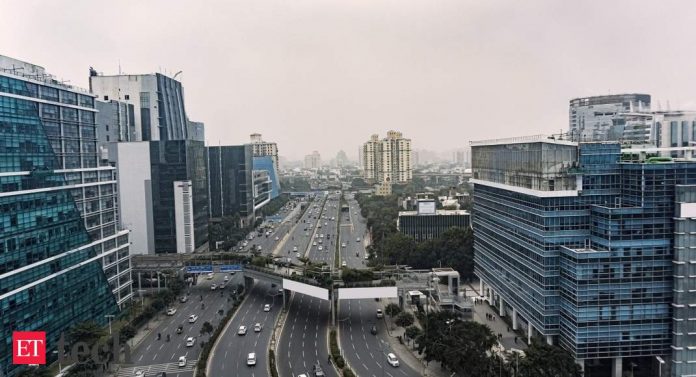
This article is written by Sushmita, pursuing a Diploma in Labour, Employment and Industrial Laws (including POSH) for HR Managers from Lawsikho.
Table of Contents
Introduction
The Governor of Haryana recently gave his assent to The Haryana State Employment of Local Candidates Bill, 2020. The bill aims to provide the opportunity for employment to candidates that are a domicile of the state of Haryana. Salient features of the bill are as follows:
- Every employer shall employ 75 percent of the local candidates with respect to the posts where gross monthly salary or wages are not more than fifty thousand rupees.
- The bill applies to all private Companies, Societies, Trusts, Limited Liability Partnership firms, Partnership firms and any person employing ten or more persons; It would not apply to any Government or state-run companies.
- Every employer shall have to register employees receiving a gross monthly salary or wages not more than fifty thousand rupees with a web portal that would be launched by the state.
- Employers may restrict the employment of local candidates from any district to ten percent of the total number of local candidates.
- The employer may claim exemption of employing local candidates on the grounds of them having inadequate skill, qualification or proficiency. The designated officer shall, after enquiry, accept, reject the claim or direct the employer to train such local candidates to acquire such skill, proficiency or qualification.
 The reason behind the bill
The reason behind the bill
The main reason for introducing the bill is said to be the large influx of migrants in the state, thus competing for daily gig jobs. As per the 2011 census, around eight lakh people migrated into the state, thereby making the state the fourth highest state in the country where the laborers migrated into. Since the 11th five year plan, the pace of structural transformation of the state’s economy has continued. In spite of robust growth recorded in the past era, the COVID-19 pandemic has largely affected the state’s economic activities in 2020-21. People have lost their jobs in huge numbers as industries continued to shut down during the pandemic.
The cons associated with the bill
The bill provides for 75 percent reservation to the local candidates in private establishments which may be unconstitutional. We may further see what the reasons might be. The Indian government is embodied by its Constitution. Hence,
- Firstly, compulsory reservation of jobs in private establishments violates their fundamental right to carry on any profession or occupation according to Article 19(1)(g) of the Constitution of India. Further, they are given full right to claim an exemption under the bill, but there’s a fair chance that the designated officer might resort to directing the organization to train the local candidates in the requisite skill, profession or occupation. After all, the bill is introduced so that local candidates are employed hence the decision would mostly sway towards their welfare. In such cases, the organization would have to bear the extra cost of training them, which will be an additional cost to the company. Through training, local candidates will be useful for the company as it would get trained manpower, but it is not necessary that all employees trained would be employed in the same company.
- Major industries that operate in the state are Automotive, IT, Agriculture and Petrochemicals. Being a preferred destination for auto majors, and auto company manufacturers, the state is the largest automobile hub in the country. The state has also committed to creating progressive development towards achieving sustainable development goals. Due to rapid industrial development, Haryana’s dependency on agriculture and its allied sectors have reduced to just 18.9% and there has been a spurt in the growth of other service sectors like banking, finances, hospitality, real estate businesses etc. Hence, it can be seen how Haryana has evolved into an industrial and service sector hub in the state as well as the country.
- Gurugram is the largest industrial and service sector hub in the state as well as the country. Many come to the city in search of new jobs and aspire to work in large MNCs situated there, mainly in call centres, IT jobs, etc. The introduction of the bill would mean there would be a scarcity of jobs for candidates from other states, who might be well qualified and have a better experience than the local candidates. The organization’s freedom here is threatened.
Can reservations be based only on domicile in the state?
Again, our Constitution comes into play here. Article 16(2) of our Constitution states that ‘No citizen shall, on grounds only of religion, race, caste, sex, descent, place of birth, residence or any of them, be ineligible for, or discriminated against, in respect of any employment or office under the State.’ Though the article states so for public employment only, it would raise questions in a whole different domain if the private institutions are treated differently for employment purposes.
Earlier, in the 93rd Constitutional Amendment Act passed in the year 2005, states were allowed to make provision for the advancement of socially and educationally backward class of citizens or scheduled castes or scheduled tribes in matters relating to admission in private educational institutions. But no such provisions were extended to private employment.
Also in a judgment of Kailash Chand Sharma vs. the State of Rajasthan, on the issue of employment of government teachers in the state based on preference to applicants belonging to a particular religion, the Supreme Court of India had held the following: “Any kind of weightage/advantage in public employment in any State service is not permissible on the ground of place of birth or residence or on the ground of being a resident of an urban area or rural area.” Hence, residence in itself cannot be a ground for reservation; however, Article 16(3) gives parliament the power to make law providing for residence as a ground for reservation in public employment. Recently, in the year 2019, the state of Andhra Pradesh passed a law for 75 percent reservation for locals in industries/factories in private sector including Public-Private Partnership. The Act had been challenged in the high court of the state and in May 2020, the honourable High Court observed it to be unconstitutional and sought a reply from the government. The case is currently pending.
Can the reservation in employment be to the extent of 75 percent?
In the famous Indira Sawhney & others v. Union of India, the Supreme Court, in its verdict upheld that caste was an acceptable indicator of backwardness and thus recommended reservation of OBCs in central government services; it also upheld the ceiling of fifty percent quotas for reservation in public employment, while emphasizing the concept of social backwardness. Though the Constitution is not rigid about the ceiling in reservation in public employment, the Supreme Court in the above judgement has somewhat made it appear so (22.5% for SCs/STs and 27% for OBCs-non creamy layer.) Thus, a recommendation of 75 percent reservation in employment may be unconstitutional.
However, the court has also expressed that while fifty percent is the rule, extraordinary situations may require this rule to be relaxed. But this clause too has not yet seen the light of the day. Many have challenged the Indira Sawhney judgement. One such case is a reservation for education and employment in the state of Maharashtra. Recently, in September 2020, the Supreme court examined the Maharashtra Socially and Educationally Backward Classes Act,2018, and stayed its implementation. The stay came from the Laxmanrao Patil v. The Chief Minister and Anr. (2020) judgement in which the main question in consideration was regarding the validity of the act mentioned above, which provided reservation in transgression of the fifty percent ceiling fixed in the Indira Sawhney judgement earlier. It also held that the social, economic and educational backwardness of a community and existence of data regarding inadequacy in public services are no exceptional circumstances for providing reservation in excess of fifty percent.
As per the Centre for Monitoring Indian Economy (CMIE) data of January 2021, the unemployment rate in India has declined to 6.5 percent in January 2021 from 9.1 percent in December 2020, while the employment rate surged to 37.9 percent as compared to 36.9 percent. And as of March 2021, the unemployment rate in Haryana has increased to 28.01%, which is among the highest in India. This data clearly speaks about the unemployment scene in Haryana. The literacy rate in Haryana is at par with the national average with the total literacy rate being 75.55 percent, only slightly higher than the national average. These statistics do give weight to the bill as proposed by the state government. But as laid down, there are certain apprehensions about the constitutional validity of the provisions of the bill.
Conclusion
The liberalization, privatization, and globalization goal of the Government of India have not yet been fulfilled, and on top of that, posing such restrictions on the private organizations on the pool of candidates from which they can hire may have certain adverse impacts like not occupying an office in the state. Upon the introduction of the bill in the legislature, many organizations have raised concerns regarding the bill due to the lack of skilled labor. Lack of skilled labour can harm the productivity of business of the private industries. This would bring forward issues like the organization becoming incompetent with respect to industries in the other states and countries. Economic survey 2019-20 observes that government interventions mostly undermine the ability of markets to spur investments and economic growth and hence, their intervention should be minimised. The bill thus poses a threat to the growth of such private organizations. Focus on educating and up-skilling the youth of the state can be a long term alternative solution to ensure jobs for them throughout the country, for, when you teach a man to fish, you can feed him for a lifetime.
Students of Lawsikho courses regularly produce writing assignments and work on practical exercises as a part of their coursework and develop themselves in real-life practical skills.
LawSikho has created a telegram group for exchanging legal knowledge, referrals, and various opportunities. You can click on this link and join:
 Serato DJ Crack 2025Serato DJ PRO Crack
Serato DJ Crack 2025Serato DJ PRO Crack









 Allow notifications
Allow notifications


